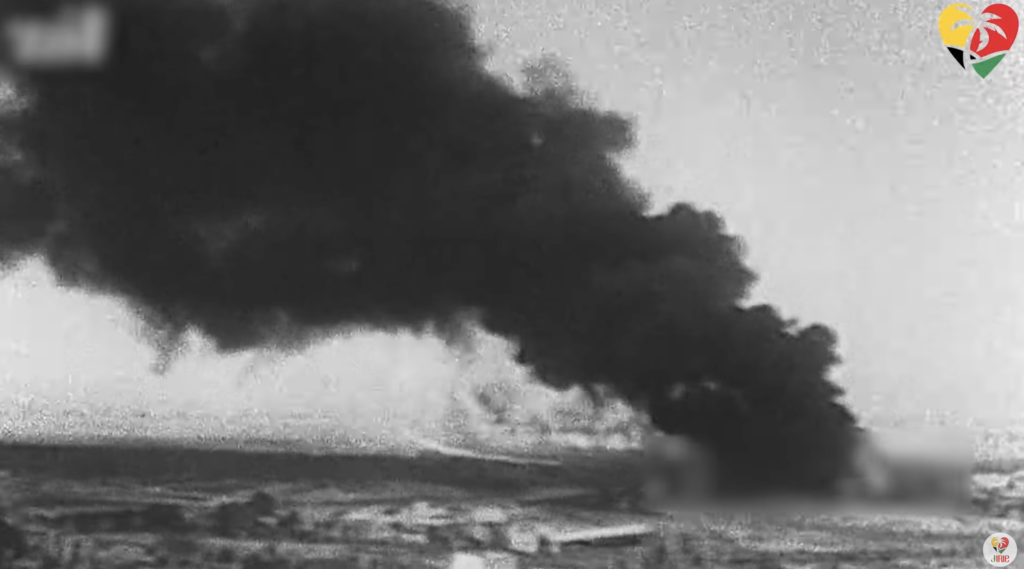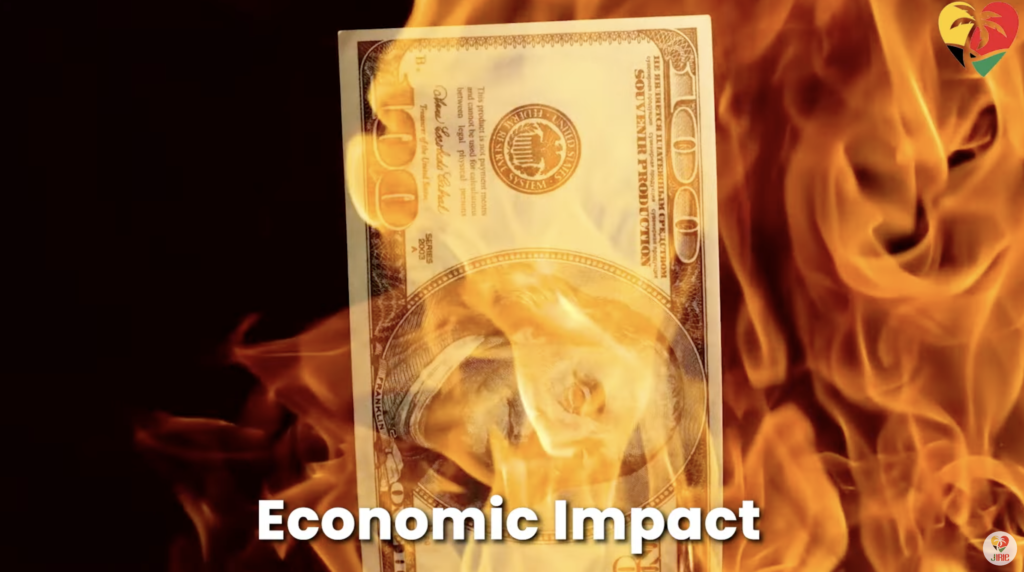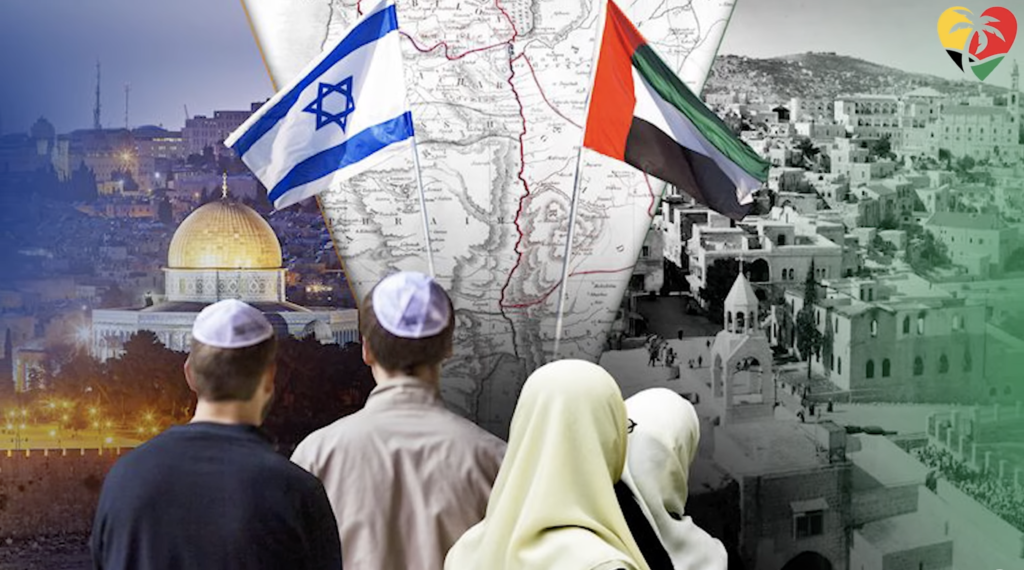Imagine this: The effects of distant rumble of conflict echoes across the world, reaching even the most serene Caribbean shores. The Israel-Palestine conflict, a turmoil thousands of miles away, might seem distant and disconnected from the vibrant life and tranquil beaches of the Caribbean, but its waves are about to reach these islands, changing their course in ways no one expected.
What does this mean for the Caribbean, a region synonymous with paradise? How could this distant war influence the economics, politics, and even the cultural tapestry of these island nations? Today, we’re going to unravel a narrative that’s as surprising as it is crucial. Stay tuned as we explore the unseen ripple effects of the Israel-Palestine conflict on the Caribbean – impacts that go much deeper than the pristine waters of this tropical haven.
What Will the War in Gaza Bring

The news has been filled with the horrors of war ongoing between Israel and Hamas in Palestine. The history and reasons behind this conflict are complex one that we are not going to dive into on this channel, but as this protracted conflict is only expected to expand, the impact it will have on the world will soon emerge.
The turmoil in the global markets after the Israel-Palestine escalations has worried many economists and others are wondering what is the likely impact on particular regions, with the Caribbean being no exception. But the effect that the Israel-Palestine conflict will have on the Caribbean will go beyond just the economic, political or even cultural. So in today’s video, we will talk about How the conflict can and might affect the Caribbean region.
Economic

The first impact we should consider is the potential Economic Impact the conflict can have on the world, and by extension the Caribbean. The first and biggest potential impact this conflict can have is on Global Oil prices. The Middle East accounts for nearly a third of the global oil supply, making it a significant contributor to oil prices. The conflict has already been associated with a rise in crude oil prices, with Brent crude and US West Texas Intermediate crude witnessing significant hikes.
This has led to the fear that instability in the region, like the Israel-Gaza conflict, can lead to speculative price hikes due to potential supply disruptions. If the conflict spreads to other oil-producing nations in the region, especially Iran, the global economy could face severe repercussions. As you can imagine, higher oil prices in the world mean higher prices in the Caribbean, and the region is doubly exposed as much of the region’s electricity generation comes from oil.
This will also have a knock-on effect, Inflation. Inflation my definition is the rise in prices, and thus as energy becomes more expensive, so too do other products. As economies and supply chains are intertwined, a rise in oil prices might lead to rises in other commodities. This was the concern from the recent Central Bank Governor of Barbados Dr. Kevin Greenidge who stated that while inflation improves, events in the Middle East must warrant caution.
Other concerns of an economic nature are much smaller. The region is not a major trading partner of with any of the two major parties in the conflict or the Middle East as a whole. Even the region’s oil does not come from the Middle East so though prices may increase, there is minimal concern about scarcity.
There is, however, possibly one positive in this whole scenario, and that is a change in investor preferences. The conflict has made investors wary, leading to a shift towards safe-haven assets like treasury and bonds. The region may see better bond and debt servicing agreements as investors move to safer Caribbean bonds. But this is way too early to say definitively.
Political

But the impact of the Isreal-Palestine conflict on the Caribbean will go beyond just economic and will also encompass the Political Impact. Already, on the international stage, political tensions are rising as it relates to which countries support which side of the conflict. The Caribbean while to a lesser extent may have to pick sides, most likely in multiple UN resolution formats.
Indeed, this has already happened. At the latest UN meeting, members voted on a draft resolution for a ceasefire in Gaza, with the voting being 120 in favor, 14 against, and 45 abstentions. All the countries in the Caribbean voted in favour, except for Jamaica who chose not to vote on the resolution. This already shows there is a political divide on the geopolitical scale between Jamaica and the rest of the Caribbean. Though Jamaica is notorious for going alone sometimes when it comes to political interests, in big instances such as this, there is usually regional consensus.
Add to this the stance of Western nations in the conflict and the region’s closeness to the West, the Caribbean will have to be cautious in treading a line between being friends of all and satellites of none.
Cultural

Finally, there is the Cultural Impact we can expect from the conflict on the region. Like every other country in the world, that is having internal debates about which side is justified in their attacks, the Caribbean too can and has already seen this culture class occur.
Groups such as the Barbados-based Caribbean Against Apartheid in Palestine (CAAP) have already voiced their opinions on the conflict and have planned to join global solidarity protests for Palestine. While Jews make up a rather small portion of the population in the Caribbean, Arabs are a much larger group. If religious and cultural divides are to adhere, the region may see even more protection and rallies in support of the Palestinian cause.
To conclude, the conflict between Israel and Palestine is a complicated one that we hope can be resolved soon. While there may be concern that the war will have a negative impact on the Caribbean, the conflict is still likely to have a minimal impact on the Caribbean.
The only major concern for the region is oil price volatility and the effects it can have on the global economy. Because the region is not closely economically connected to Israel or Palestine, it is unlikely the region will see much impact outside of the commodity price increases that a potentially higher oil price may cause. At the far end, political tension may occur among the Caribbean as countries support different sides, and as the West puts pressure on the region to support its endeavors in the region. However, in the end, it is all too soon to be sure, and we will have to wait and see how the situation unfolds.
We at J-irie Caribbean are always interested in hearing your perspective on these issues, so feel free to leave a comment below. As long as you are respectful.
As we wrap up today’s exploration of the Israel-Palestine conflict’s far-reaching impact on the Caribbean, we are reminded of the region’s resilience. The Caribbean’s spirit, much like its ocean, is vast and enduring. These islands have weathered many storms, and while the currents of global affairs may bring new challenges, the communities here are no strangers to navigating the tides of change.
So, as the Caribbean sun dips below the horizon, let’s take with us not just concerns, but also the hope that from adversity can come strength, and from solidarity, peace. Until next time, stay curious, stay hopeful, and continue to be part of the conversation that moves us all forward.


